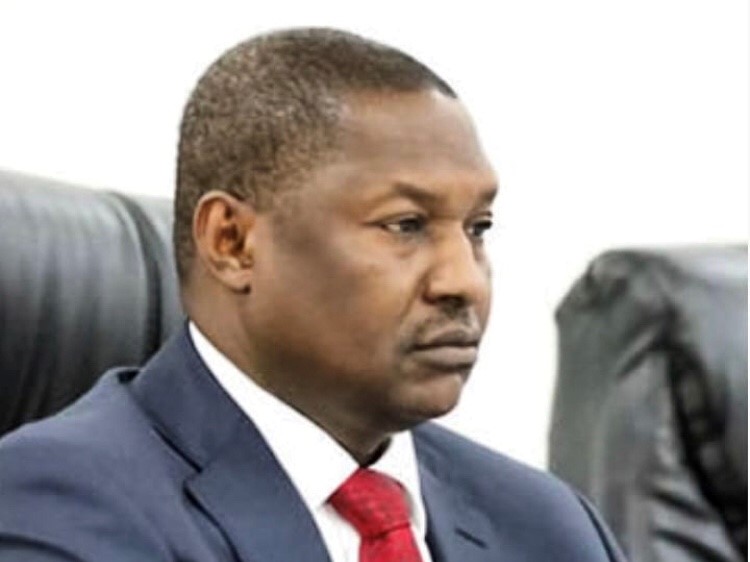The Attorney-General of the Federation and Minister of Justice, Abubakar Malami, says the ministry has secured no fewer than 1000 convictions on terrorism within 18 months.
Malami disclosed this on Thursday at the 46th session of State House Ministerial Briefing organised by the Presidential Communications Team in Abuja.
He said that within the period under review, the ministry had been involved in 312 cases ranging from terrorism to maritime offences, armed robbery, cyber-crime and kidnapping, among others.
The minister said that the justice sector encompassed all institutions of government involved in administration, enforcement and dispensation of justice.
“This sector extends beyond the federal level and cuts across sub-national entities and the three arms of government—the judiciary, the executive and the legislature.
“Effective collaboration and coordination is therefore at the crux of the mandate of the Federal Ministry of Justice.”
Malami said that the briefing highlighted not only the policy initiatives of the ministry, but also extended to critical achievements in the justice sector through policies and initiatives.
”They are targeted at improving legislative policies, the judicial system, correctional system, law enforcement, constitutional guarantees and other critical components of the entire justice sector system.
“All these are fundamental to ensuring access to justice, safety, security and in combating corruption as well economic and financial crimes in Nigeria,’’ he stated.
Malami said that the justice sector, as with every other sector, had continued to witness some challenges which constituted impediments to justice.
Malami said that through the instrumentality of the Office of the Attorney General, all justice sector stakeholders had built consensus.
He added that they had led to the identification of the challenges and resulted in the development and adoption of the first e ever National Justice Policy in 2017.
Malami said :“Following this landmark achievement of consensus among the justice sector stakeholders, all justice sector institutions across the country have continued to collaborate.
”They have also provided frameworks for the realisation of the objectives set out in the National Justice Policy.
“It is our firm expectation that the full implementation of the proposals in the national policy on the justice sector would lead to greater synergy and shared knowledge among all stakeholders involved in the administration of justice.
“But, whatever successes we are about to unfold under the administration of President Muhammadu Buhari are the products of that consensus.
”We are happy to state for the first time in the history of this nation, we are doing wonderfully well arising from the consensus that has been built among these stakeholders in the administration of justice.’’
He said that his focus was on the criminal prosecution by the ministry in the last 18 months.
Malami said that at a point, the country was confronted with the challenge related to the speedy administration of justice.
He said that the Federal Ministry of Justice, through a consensus building by legislature, the executive and ministries, came up with the Administration of Criminal Justice Act and its implementation to speed up prosecution.
“We were confronted further with the challenge of high profile anti-corruption cases.
“Those involved in it were using the proceeds of the crime in question to pose a greater challenge to what we are doing.
”This is arising from their movements, arising from the deployment of such resources, we also came up with Executive Order No 6 which restricts their access to funding,” the minister said.
He said that on the basis of the act and the executive order, the foundation for prosecution was laid.
The minister said that aside from collaborative achievements, the ministry had made exclusive landmark achievements.
“So, arising therefrom, for example, by way of criminal prosecution, the Federal Ministry of Justice, exclusively, I am not talking about the entire prosecution because other agencies of government—EFCC, NDLEA, ICPC are equally involved in direct prosecution.
“So, the Federal Ministry of Justice, within the 18 months period, I am talking about, was actively involved in the prosecution of 312 criminal cases.
”These were for various offences including terrorism, maritime offences, armed robbery, cyber-crime and kidnapping, among others.
“We have so far, as a ministry secured over 1000 convictions on terrorism within the period in consideration,” he said.
(NAN)









